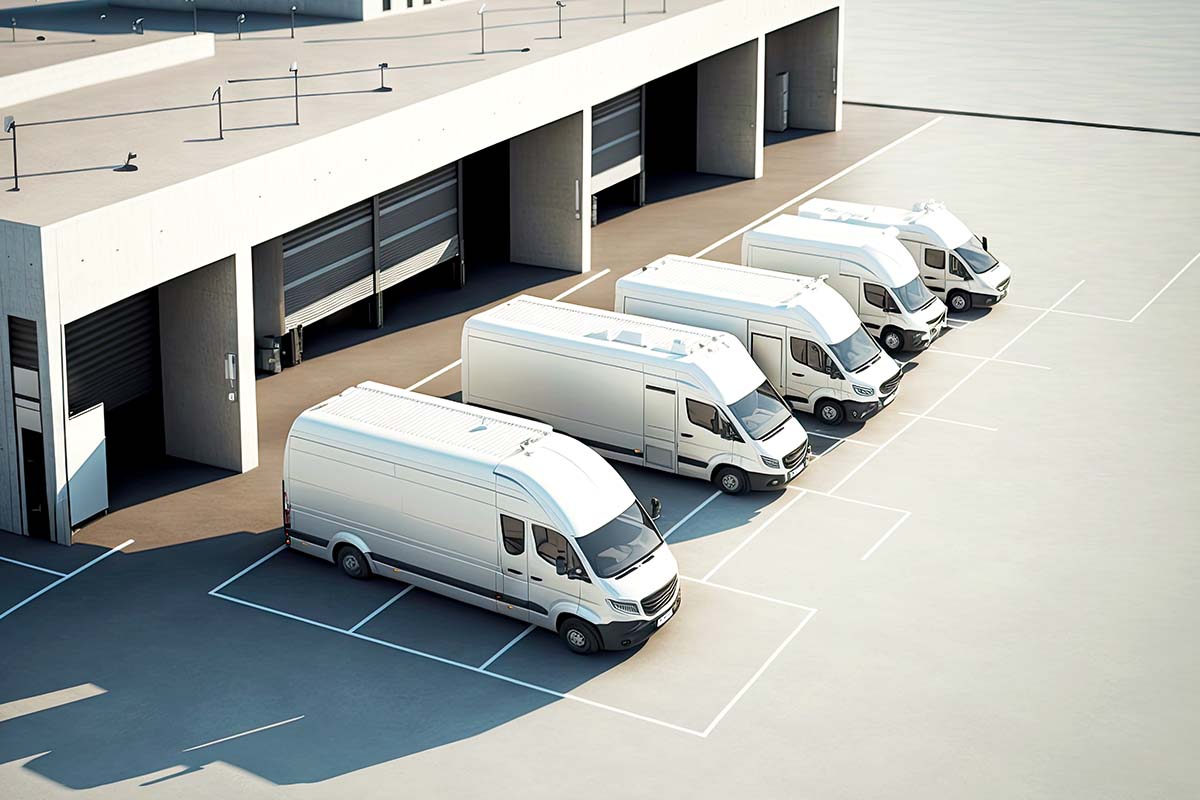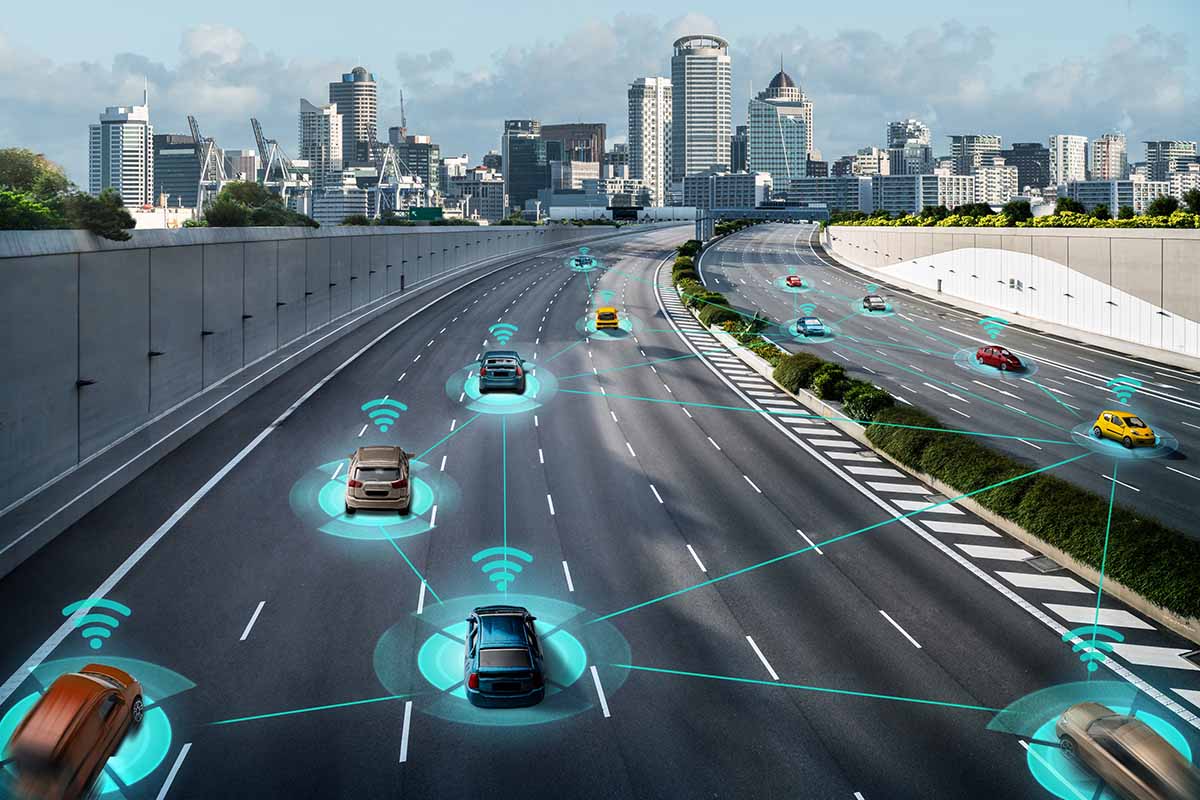The Road Ahead: Anticipating the Future of Commercial Fleet MGMT
In an ever-evolving business landscape, the concept of fleet management is undergoing transformative shifts. Businesses are more conscious than ever about the environmental impact, cost-efficiency, and operational excellence of their fleets. Today, we explore how commercial fleet management is preparing itself for a future that will be defined by technological advances, an evolving workforce, big data analytics, and an unflinching focus on customer-centricity. In this article, we will delve into each of these facets to paint a comprehensive picture of what lies ahead for this dynamic industry.
Charting the Course for Future-Ready Fleet Management
When we talk about fleet management, it’s critical to understand that it’s not just about tracking vehicles and scheduled maintenance anymore. It’s a multifaceted operation that involves strategic planning, efficient utilization of resources, and a proactive approach to challenges. The idea is to go beyond mere management and venture into the realm of optimization.
One area where this shift is most evident is in the reliance on car shipping services for adequate fleet operations in multiple locations. As businesses expand geographically, it becomes imperative for them to have access to their fleet in a timely and cost-effective manner. Car shipping services offer this capability by enabling businesses to move multiple vehicles across states or even countries with utmost efficiency.
According to Montway Auto Transport, one of the California auto transport companies available to businesses nationwide, “Fill in your pickup and drop-off locations, vehicle type, and other details into our online rate calculator to get an instant quote.”
However, it’s not just about moving vehicles from Point A to Point B. The car shipping services must align with the overall goals of the fleet management strategy, offering flexible and scalable solutions that can adapt to the changing needs of the business. In doing so, they act as a valuable extension of the company, allowing for a more dynamic and responsive fleet operation.
Imagine having real-time data about every single asset in your fleet, from fuel consumption and vehicle health to driver behavior and route efficiency. Technological advancements are making this a reality, turning data into actionable insights that can drive business growth. Fleet managers no longer have to rely on intuition and experience alone; they have empirical evidence to back their decisions.
Integration is another keyword for future-ready fleet management. Gone are the days when different departments operated in silos, with little to no communication among them. Today, fleet management software interfaces seamlessly with other business systems—be it HR, finance, or customer relationship management—ensuring a unified approach to decision-making.
While technology and data are the cornerstones of modern fleet management, the human element cannot be ignored. Managers need to cultivate a culture of accountability, safety, and continual learning within their teams. After all, a fleet is only as effective as the people who operate it.
The transition to sustainable practices is no longer a choice but a necessity. Companies are exploring options like electric vehicles, alternative fuels, and carbon offset programs to reduce their ecological footprint. But sustainability isn’t just about the environment; it’s also about long-term viability and cost-effectiveness, factors that are equally crucial for future-ready fleet management.
Whether it’s by adopting green practices or leveraging big data analytics, the aim is clear: to create a fleet that’s not just efficient and cost-effective but also future-proof. This means continually adapting to new technologies, industry trends, and shifts in consumer expectations, all while keeping an eye on the bottom line.
Technological Advances: Smart Vehicles and Beyond
In the world of fleet management, technology is not merely a tool but a catalyst that transforms every facet of the operation. It starts with smart vehicles—those equipped with advanced telemetry and sensor technology that relay critical information in real-time. These are not the cars of yesterday but the digitally connected chariots of the modern age, rolling computers that can predict maintenance needs, optimize fuel usage, and even guide driver behavior.
IoT, or the Internet of Things, is another frontier in this technological revolution. Imagine if not just the vehicles but every device and component involved in fleet operations, were interconnected. We’re talking about everything from traffic lights and road signs to fueling stations and repair shops, all sharing data and making intelligent decisions that contribute to the smooth functioning of the fleet.
Of course, all this technology needs a robust cybersecurity framework to protect it. The last thing a fleet manager wants is a hacker taking control of a vehicle or gaining unauthorized access to sensitive data. So, as the technology grows smarter, the security protocols around it need to become more impervious.
Automated or autonomous vehicles represent the next major leap. While full automation may still be a few years away, various levels of automation—from adaptive cruise control and lane departure warnings to more advanced functionalities—are already a reality. Such features are not just cool add-ons but vital tools that can improve safety, efficiency, and even driver satisfaction.
Artificial Intelligence (AI) and Machine Learning (ML) are not just buzzwords but critical technologies shaping the future of fleet management. Whether it’s through predictive maintenance algorithms, routing optimizations, or real-time decision-making during a drive, these technologies are creating a more intelligent and responsive fleet operation.
Imagine a fleet operation that is as dynamic as the market conditions, capable of adapting on the fly to meet customer needs and operational exigencies. That’s the promise of technology. But for that to happen, it’s crucial for companies to invest in not just technology but also the talent to harness it effectively.
Talent Management: Adapting to a Shifting Workforce
One of the most underestimated yet critical aspects of future-ready fleet management is the human component. As technology advances, there’s a pressing need for a workforce that can keep up. The first step in this direction is to re-define what it means to be a driver in the digital age. Gone are the days when driving skills alone sufficed; today’s drivers must be tech-savvy, able to interact with advanced systems, and understand the value of data.
Not only drivers but also the fleet managers and executives need to adapt to this new paradigm. They must be equipped with operational expertise and a keen understanding of technology, data analytics, and even cybersecurity. It’s a multidisciplinary approach that necessitates ongoing education and skill enhancement.
What about the new generation entering the workforce? The millennials and Gen Z workers are digital natives, and they expect a work environment that is technologically up-to-date and offers avenues for growth and learning. Companies need to focus on creating such an environment to attract and retain this valuable talent.
Adaptability is the keyword here. The fleet industry is evolving rapidly, and those who cannot adapt will be left behind. Therefore, companies need to invest in training programs, not just to teach new skills but also to inculcate a culture of continuous learning and adaptability.
Work-life balance is another factor that cannot be ignored. As the lines between work and life blur in this interconnected world, companies need to find ways to ensure the well-being of their employees. This could mean offering flexible hours, remote working options, or even health and wellness programs.
It’s not just about recruiting the right people but retaining them, and that’s where employee engagement comes into play. A motivated, engaged workforce is not only more productive but also more loyal. Companies need to focus on building a positive work culture where employees feel valued and empowered.
Big Data and Predictive Analytics: The Decision-Making Revolution
Data is the new oil, as the saying goes, and it holds exceptionally true in the context of fleet management. The sheer volume of data generated from vehicles, drivers, and operations is staggering. But it’s not about the quantity of data; it’s about the quality of insights derived from it.
Predictive analytics is the game-changer here. It enables fleet managers to move from reactive decision-making to a proactive approach. For instance, instead of waiting for a vehicle to break down, predictive analytics can forecast when a particular component is likely to fail, thereby facilitating preventive maintenance.
Data analytics is not just for operational efficiencies; it’s also instrumental in strategic decision-making. By analyzing patterns and trends, fleet managers can make informed decisions about asset utilization, route optimization, and even driver training programs. The result is a more agile and cost-effective operation.
But data alone isn’t the solution; it’s how that data is interpreted and acted upon that makes the difference. This necessitates the integration of analytics tools with the broader enterprise systems, ensuring a cohesive approach to decision-making that aligns with the company’s strategic goals.
Transparency is another significant advantage offered by data analytics. When every aspect of the operation is tracked and analyzed, it becomes easier to maintain accountability, both within the team and in interactions with stakeholders. This can be a powerful tool for building trust and credibility.
Customer-Centricity: A New Era of Service Excellence
With all this talk of technology and analytics, let’s not forget the most critical aspect of any business—the customer. In a digital world, where customers are used to Amazon-like efficiency and Netflix-like personalization, expectations are sky-high. Fleet management companies need to evolve to meet, if not exceed, these expectations.
Customer-centricity is no longer a buzzword; it’s a business imperative. This means understanding the customer’s needs, preferences, and pain points, and then aligning the services accordingly. It’s not just about delivering a vehicle from Point A to Point B but doing so in a manner that adds value to the customer’s business or life.
Technology plays a significant role in achieving this customer-centricity. Whether it’s through real-time tracking updates, personalized notifications, or even chatbots that can handle routine queries, the goal is to make the customer’s life easier and more convenient.
But it’s not just about the technology; it’s also about the human interaction. Customers value transparency, communication, and reliability. Fleet managers need to ensure that their team, from the drivers to the customer service representatives, is trained to deliver on these expectations.
What sets a company apart in this new era of service excellence is the ability to anticipate customer needs even before they articulate them. This involves attentive listening and data analytics to identify patterns and preferences. In doing so, companies can offer a proactive service that delights customers and fosters loyalty.
An essential aspect of customer-centricity is feedback. Companies need to actively seek, analyze, and act upon customer feedback. This could mean conducting regular surveys, monitoring social media, or even setting up advisory panels consisting of key customers. It’s a continuous process of learning, adapting, and improving.
The future of commercial fleet management is not a linear extension of the present but a dynamic landscape shaped by technology, human talent, data analytics, and an uncompromising focus on the customer. Whether it’s smart vehicles that act like rolling data centers, predictive analytics that enable proactive decision-making, or a workforce that’s as adaptable as it is skilled, the elements are falling into place for a transformative journey ahead.
Businesses that wish to stay relevant in this rapidly evolving scenario must be prepared to invest, innovate, and adapt. It’s not just about managing a fleet of vehicles; it’s about steering a complex operation toward a future that promises challenges and unprecedented opportunities.




















